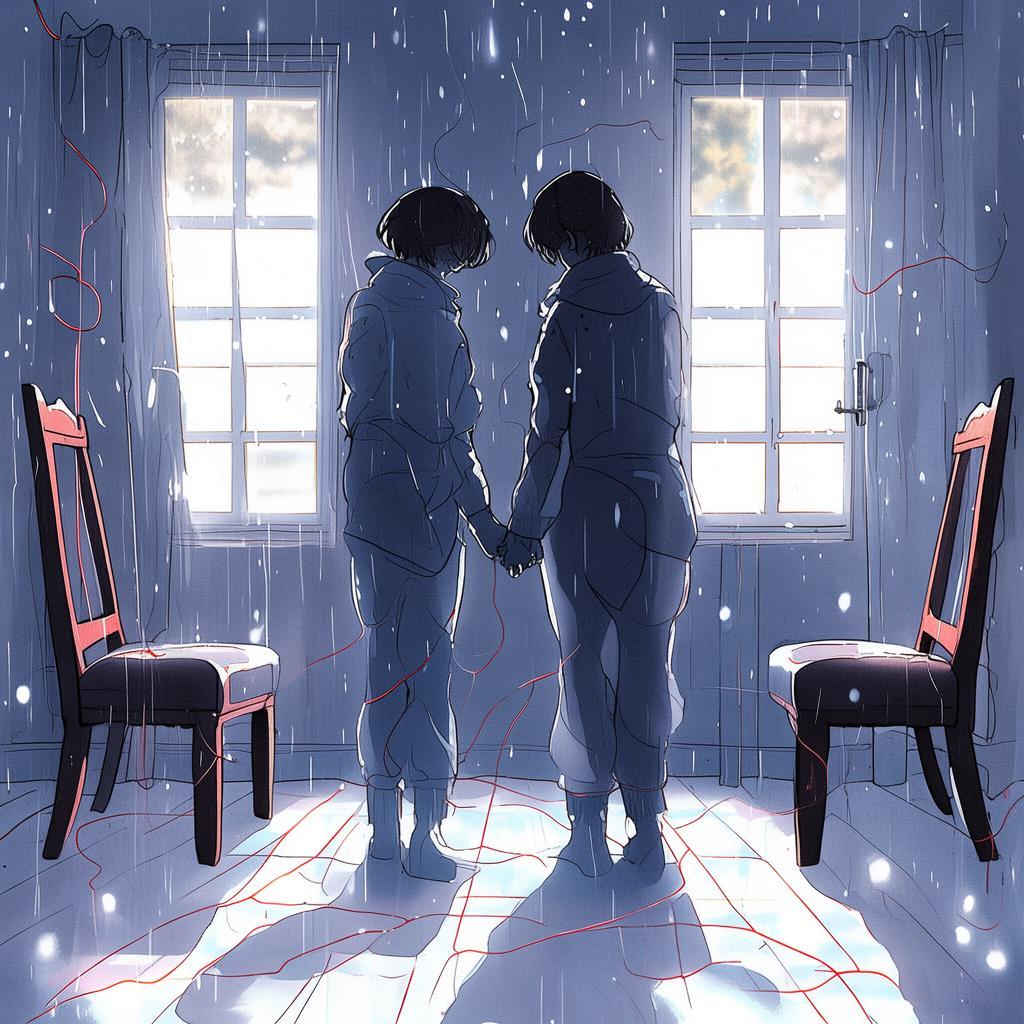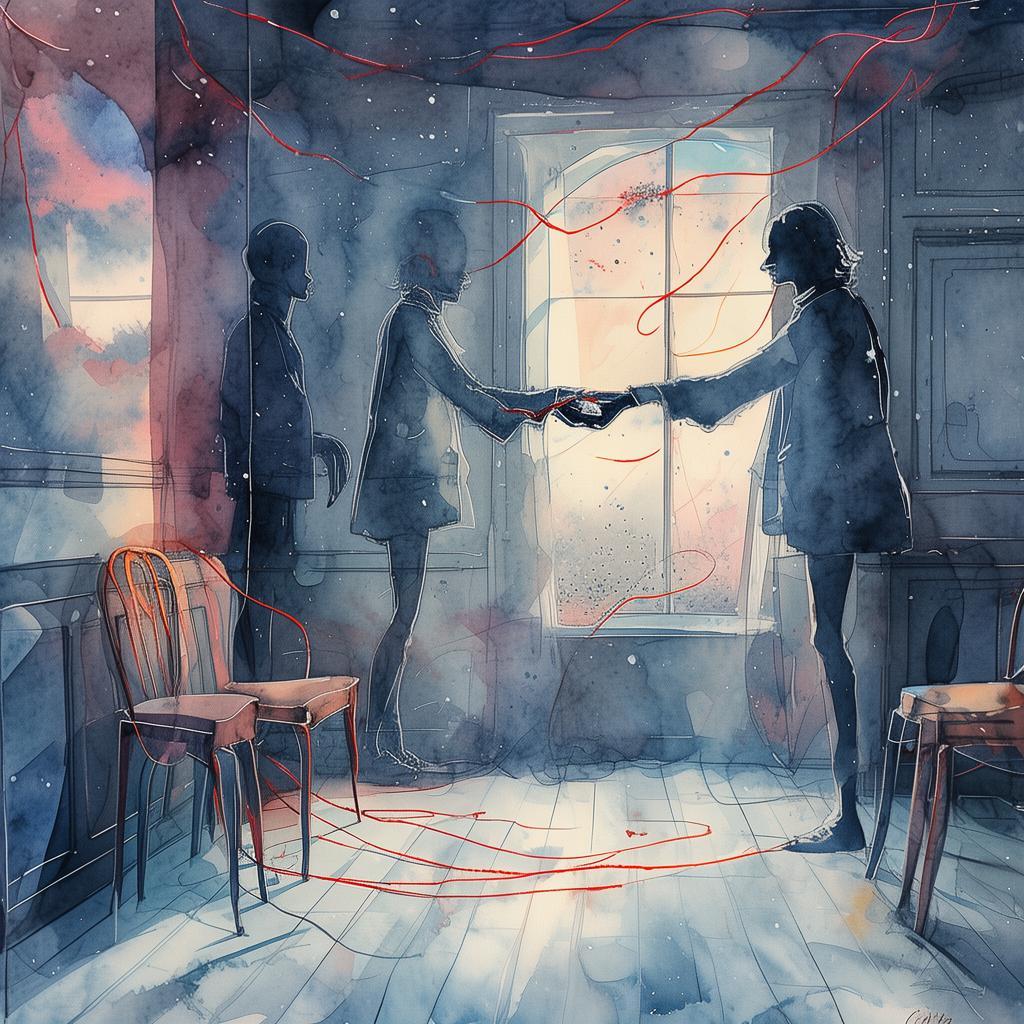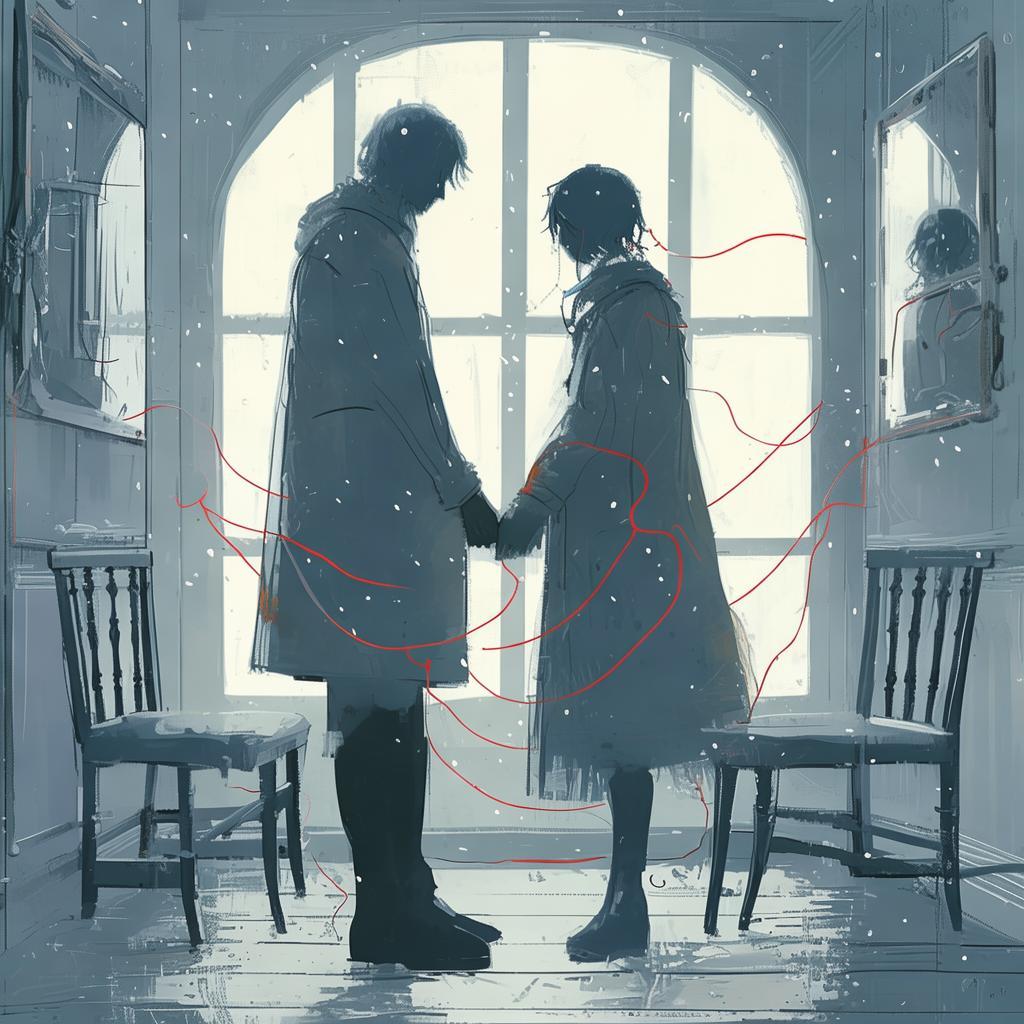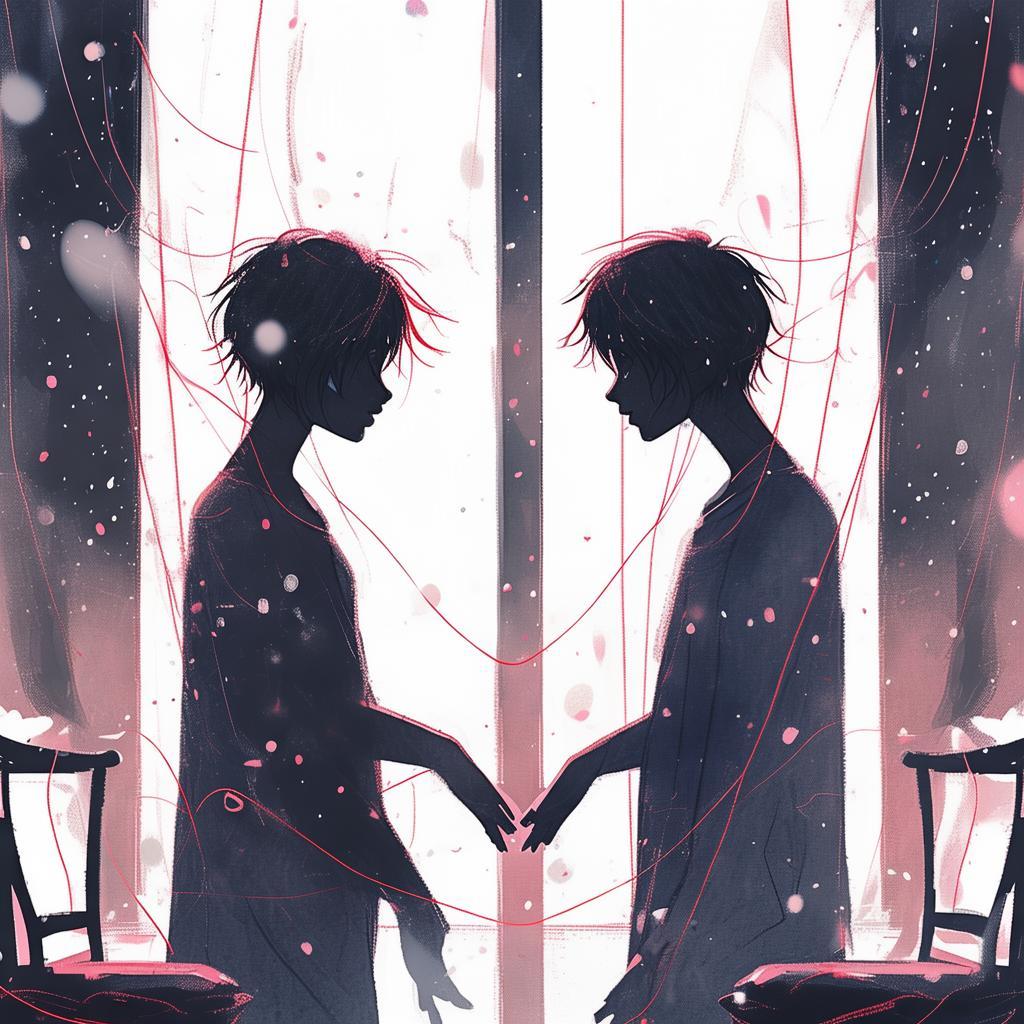The Rivalry of the Valkyries: Love in the Norse Pantheon
In the frosty expanse of Asgard, where the gods walked the earth and the sky was a tapestry of stars, there were beings of such power and beauty that they could change the very fabric of fate. They were the Valkyries, chosen by Odin, the Allfather, to lead the fallen warriors to Valhalla. Among them were two whose rivalry was as old as the world itself—Freya, the goddess of love and beauty, and Sif, the protector of the gods and the earth.
Freya was a vision of ethereal grace, her golden hair flowing like the sun's rays and her eyes as deep as the blue Norse seas. She was the embodiment of love and beauty, and all the gods and mortals alike were drawn to her charm. But it was not just her beauty that made her stand out; it was the power she wielded over the hearts of men. She could inspire passion, but she could also crush it with a mere thought.
Sif, on the other hand, was a warrior goddess, her armor a testament to her strength and resolve. Her hair was woven into braids that seemed to be made of living silver, and her eyes blazed with the fire of battle. She was the guardian of the gods, and her loyalty was as unyielding as the mountains of Midgard. She was the one who ensured the gods were never defeated, but her heart was as cold and unyielding as her armor.
Their rivalry began in the halls of Asgard, where the laughter of Freya's court was often heard in stark contrast to the silent, intense focus of Sif's training sessions. It was said that Odin had chosen them for their differing strengths, and so they were set against each other in a silent contest, their loyalties and affections divided.

Freya's love was as fickle as the wind, flitting from one mortal to another, leaving a trail of broken hearts and a legacy of beauty. She saw love as a game, a challenge to be mastered, and her heart was as hard as the ice that covered the North. Yet, in her heart of hearts, there was a longing for something more, something beyond the fleeting moments of passion she craved.
Sif, however, loved with a fierce loyalty that could withstand the test of time. She had no time for the whims of love, for she knew that her duty was to the gods, to the earth, and to the balance of the cosmos. Yet, as she stood atop the highest peak, gazing at the world she protected, she felt a loneliness that only love could fill.
The story unfolds in a series of intense encounters, where the two goddesses' paths cross and clash. They are pitted against each other in trials designed by the gods to test their loyalties and their strengths. In these trials, their emotions are laid bare, and the true depth of their love and rivalry is revealed.
One such trial was a tournament held in the great hall of Odin, where the gods gathered to watch the spectacle. Freya and Sif were to compete in a series of contests, each designed to push them to their limits. The first contest was a riddle-solving game, where the winner would gain the favor of the gods. Sif's intellect and quick wit were matched only by Freya's beauty and charm.
As the contest progressed, the two goddesses found themselves facing each other in a riddle that spoke of the heart's true desire. The riddle was so profound that it cut through their armor of rivalry and touched the core of their souls. It was a riddle that spoke of love, of the pain and the joy that comes with it, and of the strength required to face the depths of one's heart.
Freya, with her heart in her eyes, answered the riddle with a truth that she had long denied to herself. "The heart's true desire is not to win or to be loved, but to be free," she whispered. Her words were like a revelation, and the gods were moved by her honesty.
Sif, however, remained silent. She knew that her heart's desire was to protect the world she loved, to ensure that the gods would always have a guardian. "The heart's true desire is to be the shield that protects the ones I love," she said, her voice steady and resolute.
In that moment, the gods saw the true strength of both goddesses. They saw that their rivalry was not a contest of power, but a dance of hearts, a reflection of the world's duality. They saw that love, in all its forms, was a force that could unite and divide, and that the true essence of love was not in the winning or losing, but in the courage to face the heart's truth.
The gods decreed that the two goddesses would no longer be in rivalry, but instead, they would be allies, each bringing their unique strengths to the pantheon. Freya's love would be used to inspire and heal, while Sif's strength would be used to protect and defend.
And so, the rivalry of the Valkyries was replaced with a bond of love and respect, a testament to the power of the heart and the enduring strength of love in the Norse pantheon.
✨ Original Statement ✨
All articles published on this website (including but not limited to text, images, videos, and other content) are original or authorized for reposting and are protected by relevant laws. Without the explicit written permission of this website, no individual or organization may copy, modify, repost, or use the content for commercial purposes.
If you need to quote or cooperate, please contact this site for authorization. We reserve the right to pursue legal responsibility for any unauthorized use.
Hereby declared.









